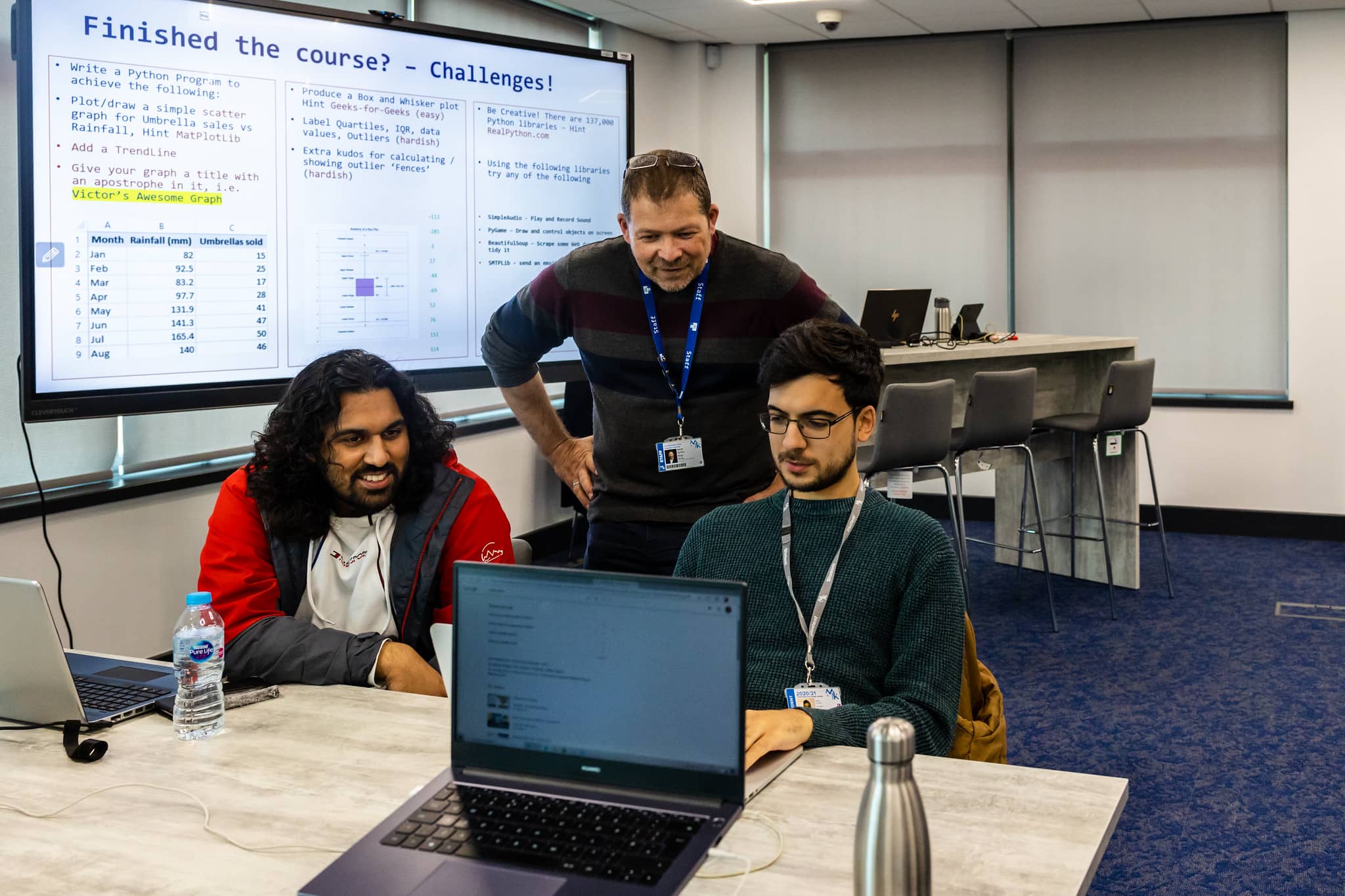South Central Institute of Technology Optimistic for Tech and Security Industry Diversity

By Paul Gartside: Dual Professional at the SCIoT, Data Coach and Curriculum Developer
For the last 24 years I have worked directly as a senior leader in the UK Security Software Development Industry. The industry suffers from some significant diversity challenges, gender, ethnicity and learning pathway with University dominating the recruitment candidate pool.

I recently read the Info Security Magazine article ‘Most Workers Not Interested in Switching to a Cyber Security Role’.
The article was based on an industry survey conducted by the Cyber Security certification organisation (ISC)2. The findings, while positive about the perception of the industry, made for some depressing reading with regard to the future candidate pipeline:
- Women were more likely than men to perceive the industry as intimidating and to be put off by the lack of diversity.
- 77% respondents were never offered cybersecurity as part of their school or college curriculum.
- Generation Z respondents were least likely to view cybersecurity professionals in a positive light.
This year I have had the opportunity to switch gears and take on a new challenge as Security and Data Analytics Coach at the new Milton Keynes South Central Institute of Technology. After such a long time in commercial software development I wanted to explore a more inspirational role and pass on my experience and knowledge to the potential future technologists as part of the new Institute’s Dual Professional initiative to bring experienced industry professionals into coaching and teaching roles.
My early experiences offer a potentially encouraging view for the industry, it’s early days for the South Central Institute of Technology and as a result student numbers are modest at just over 30. What is more impressive is the diversity mix: 22% female, 52% BAME, 37% with a declared learning difference. These numbers are significantly higher than for the industry the students will enter.
The Security module I teach is 80% BAME & 20% Female, again, encouraging statistics.
Having only one datapoint makes this a little difficult to scale up but based on my experiences from my time in commercial SW development recruitment candidates didn’t come close to the diversity mix above, despite concerted efforts.
There was however a very strong reliance on the university pathway for new recruits, and I suspect that this is a significant factor in driving down diverse candidates as well as limiting the diversity of learning approaches. I would like to be clear in that I have no objection to Computer Science graduates, though I believe the industry is missing out on some excellent candidates and diverse perspectives that College and Institute of Technology graduates could add to the mix.
The industry is rightly very concerned about its employee diversity. The recruitment problem, however, is a maths issue. Assuming that you hold true to hiring the best person for a job then a pool where only a small percentage of candidates are diverse means that the problem will be with us for a long time to come.
There are measures such as positive discrimination, but these can be corrosive to trust and employee relations and can undermine the credibility of those it seeks to help. A far better near-term solution would be to expand candidate acceptance criteria and maximise use of programs such as technology and digital apprenticeships.
Simply put, not everyone learns the same way and not everyone has the support network to enable them to learn at a particular institution. By expanding the diversity of the candidate pool to different institutions you expand the pool to all elements of diversity including learning, thinking and potential innovation outcomes.
The enthusiasm and the engagement I see in the classroom, along with the diversity of the students, should be a cause for celebration in the industry and it’s one that confirms I made the right decision to become a Dual Professional.
If you’re interested in becoming a Dual Professional, or want to support the South Central Institute of Technology in improving equality, diversity and inclusion across the digital sectors, take a look at our careers page.
